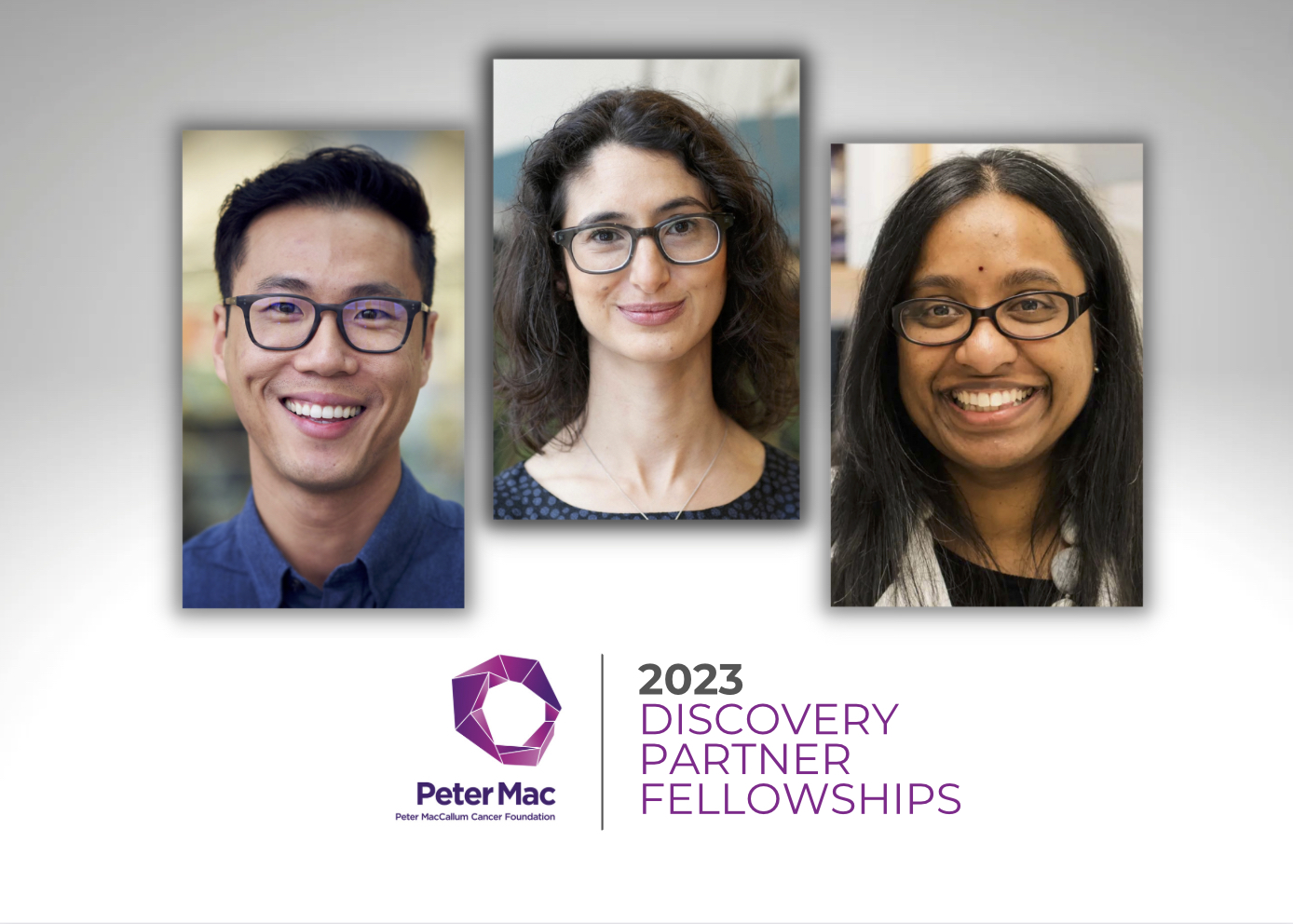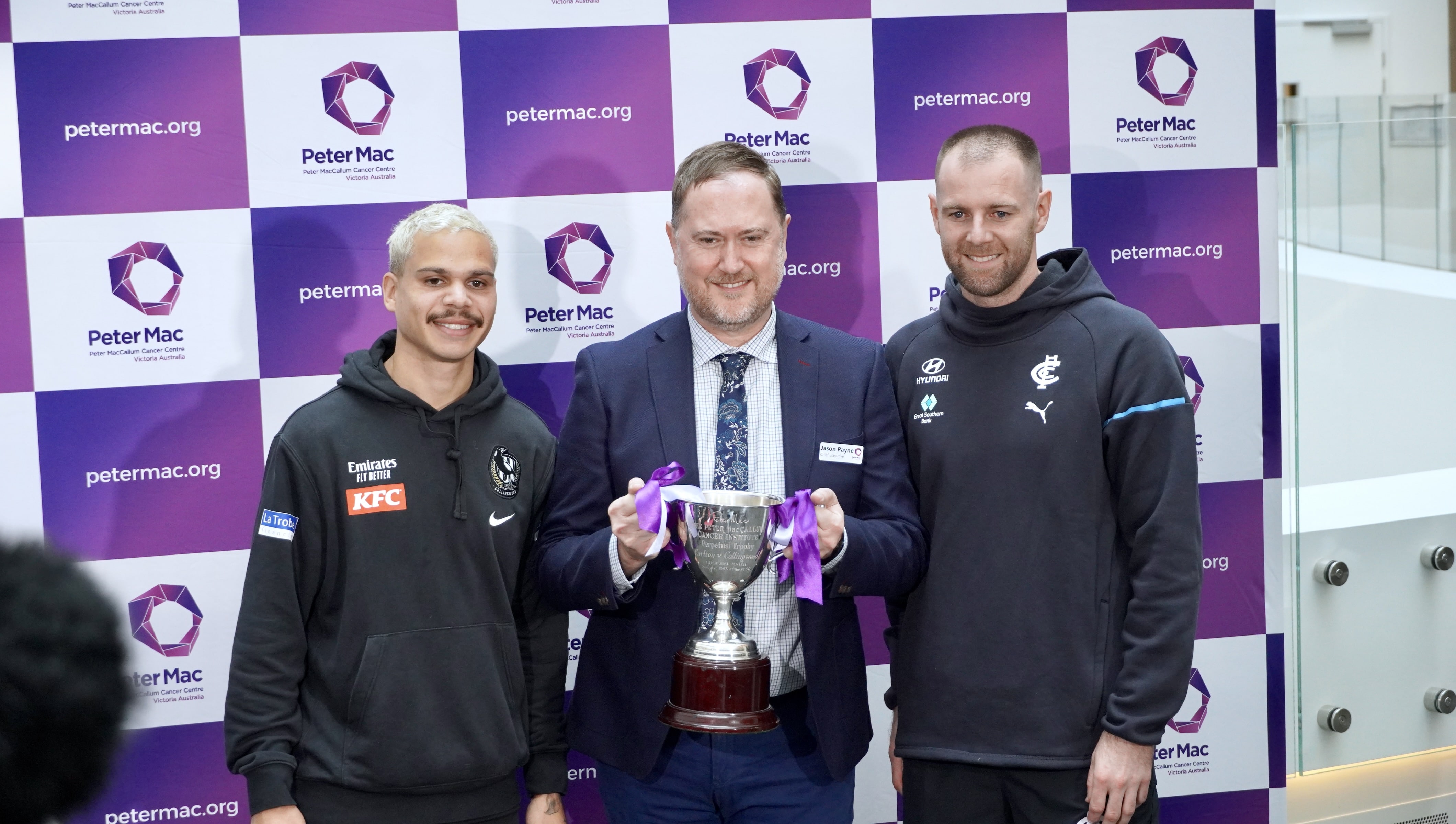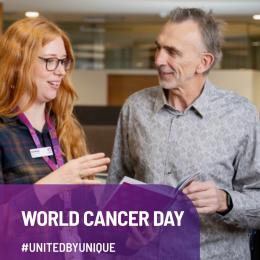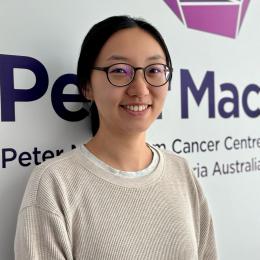2023 Discovery Partner Fellows Announced
11 August 2023
Three of Peter Mac’s most promising clinical researchers have received 2023 Discovery Partner Fellowships.
The 2023 Fellowships, generously supported by loyal donors to Peter Mac Cancer Foundation, have been awarded to Dr Aparna Rao, Dr Julia Dubowitz and Dr Lewis Au.
“It’s amazing to think that more than 50,000 Australians, who give so generously to our Discovery Partner program each month, are empowering researchers to make such remarkable progress in cancer research, right here at Peter Mac,” said Foundation Chief Exec, Kate Torney.

Now in its sixth year, the Discovery Partner Fellowships program is open to early or mid-career Peter Mac clinicians who also perform research.
The Fellowship provides financial support and a mechanism to carve out time from clinical roles (between 0.2 and 0.3 FTE) to progress well-planned research projects.
“We are very proud of this program and the outcomes our Discovery Partner Fellowship recipients have achieved in the past,” Associate Director, Clinical Research, Professor Jayesh Desai said.
“The Fellowship provides time away from front-line clinical roles to progress defined research projects focussed on advancing cancer treatments and improving patient outcomes and experience.
“This year we had many extraordinarily strong candidates. All underwent a competitive evaluation process to enable us to select just three recipients,” he said.
Congratulations to the three very worthy recipients. We look forward to observing the outcomes of your research as you strive to improve outcomes for cancer patients.
Read more about each research project below.
Dr Aparna Rao
Identification of metabolic phenotypes associated with prognosis and therapeutic response in patients with melanoma (The MetaMel Study)
Australia has the highest incidence of melanoma globally. Although newer therapies have dramatically improved outcomes, we have limited understanding of why some patients relapse or do not respond to therapy. Understanding the fuels that tumours use to derive energy (metabolism) could potentially help answer such questions.
Dr Rao will use novel techniques to characterise metabolism in living melanoma tumours. She will use recently developed ground-breaking techniques to study metabolism directly in patients rather than using pre-clinical models in the laboratory.
This exciting opportunity will allow us to gain insights into tumour metabolism in a manner that was impossible in the past. The two main techniques to be used involve assessing characteristics of the metabolism of a tumour from a standard biopsy sample (using a method known as metabolomics) and administering a non-radioactive, stable isotope infusion of glucose, to get a detailed view of how melanomas utilise this important fuel to aid their growth.
Dr Rao aims to apply the knowledge gained from these studies to develop biomarkers to predict which patients are likely to relapse and help develop novel therapies for patients with melanoma.
Dr Julia Dubowitz
Modulating the perioperative stress response to improve patient outcomes after cancer surgery
Surgery remains the primary treatment for many solid cancers, but major surgery places the body under significant stress. Furthermore, complications after major cancer surgery can occur in up to 25 per cent of patients. These complications can delay or impair a patient’s recovery, quality of life and importantly, their ability to receive other life-saving cancer therapy.
Anaesthesia (administered to facilitate surgery) alongside other treatments at the time of surgery plays a role in modulating the extent of this deleterious stress response.
Dr Dubowitz’s research aims to investigate the effect of surgical stress on patients undergoing major cancer surgery. She aims to identify potential therapeutic targets around the time of surgery to reduce post-surgical complications and improve long-term cancer survival.
Dr Lewis Au
Developing a spatially-stable predictive biomarker of immunotherapy response in clear cell renal cell carcinoma
Immunotherapy is now a standard treatment for many patients with cancer. In particular, for patients with stage IV kidney cancer, immunotherapy can provide initial responses in 50-60 per cent of cases. However, accurate selection of patients for immunotherapy is difficult as there is no way of knowing who is best suited to this treatment or will derive longer term benefits.
This is particularly challenging in kidney cancers, which are often made up of different populations of cancer cells even within a given tumour or metastasis, almost like a mosaic. This is termed ‘intratumour tumour heterogeneity’. Therefore, a biopsy of one area to do molecular testing may give a different result to another area – and doing multiple biopsies for patients is not a practical solution.
Dr Au’s project leverages his previous work that showed a new RNA-based assay can help, where one biopsy can accurately capture the total intratumour heterogeneity of kidney cancer, with potential for this to be implemented in clinic in due course. He aims to apply this technique first to find out what the signature is for kidney cancer and how this relates to immunotherapy response, then validate this finding using tumour material collected as part of the ongoing KRAB Kidney Cancer Registry running at Peter Mac and other sites in Victoria.
The goal is ultimately to develop a test that can be used in clinic, to understand upfront who is best suited to immunotherapy treatments in order to better personalise care for patients with this disease.
New discoveries save lives. When you become a Discovery Partner by donating monthly, you play a vital role in the search for cancer cures.
Become a Peter Mac Discovery Partner
@Follow us on Instagram (@SupportPeterMac)







